MercoPress. South Atlantic News Agency
Tag: drought
-
Tuesday, June 20th 2023 - 11:00 UTC
Lacalle Pou decrees water emergency in Montevideo metropolitan area
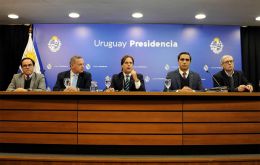
Uruguayan President Luis Lacalle Pou Monday announced new measures to face the water crisis after a cabinet meeting, it was reported in Montevideo.
-
Wednesday, May 31st 2023 - 11:27 UTC
Magallanes Region to the rescue of farmers given the persistent drought
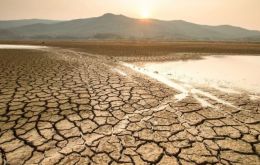
Systems to collect and accumulate water, plus troughs, were some of the implements that were distributed among farmers in the Magallanes Region, extreme south of Chile, to combat the hydric scarcity which affects the whole region.
-
Tuesday, May 23rd 2023 - 10:47 UTC
Uruguay to import bottled water: desalinization plant does not fit in aircraft
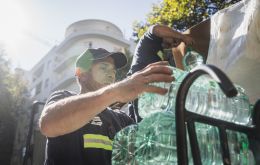
Uruguay's Economy Ministry Monday greenlighted the tax-free import of bottled water as one of the measures against the drought affecting Montevideo and the metropolitan area, it was reported. Meanwhile, Presidential Secretary Álvaro Delgado confirmed that the desalination plant to be brought from Houston does not fit “by 15 centimeters” in the C-130 Hercules aircraft sent to pick it up and it will therefore take “a few weeks” to reach South America by ship.
-
Thursday, May 18th 2023 - 11:57 UTC
Some rains forecasted but water crisis still dramatic in Uruguay

Uruguay's Meteorological Institute (Inumet) Wednesday announced it forecasted rainfalls between May 19 and 21, albeit below 10 millimeters, with a probability of occurrence between 60% and 80%, it was reported in Montevideo.
-
Wednesday, May 3rd 2023 - 10:58 UTC
Shortage of rain water threatens Panama Canal crossings forcing ships to reduce their draft and cargoes
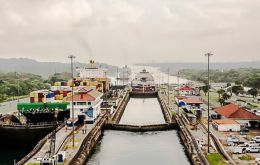
Insufficient rainfall has once again forced the Panama Canal to reduce the draft of ships crossing through the inter-oceanic route – another episode of the water supply crisis that threatens the future of the maritime course that handles 6% of global maritime trade
-
Thursday, February 2nd 2023 - 23:54 UTC
Uruguay: Drought losses estimated at USD 1.200 million, Minister says

Uruguay’s Minister of Livestock, Agriculture, and Fishing, Fernando Mattos, appeared before the Permanent Commission of Parliament at the request of the opposition Frente Amplio (Broad Front) to explain the measures taken by the government in response to the drought that has affected the country since last year.
-
Thursday, January 19th 2023 - 10:22 UTC
Agricultural emergency, triggered by drought, extended for another 90 days in Uruguay

More than 60% of the Uruguayan territory is suffering from extreme or severe drought in the last three months, October 2022/January 2023, according to the Uruguayan Meteorological Institute, Inumet,
-
Saturday, January 14th 2023 - 10:13 UTC
Drought in Argentina will have a great impact on agriculture production

The drought affecting over half of Argentina's territory means agricultural production levels this year will be lower than during the 2021/2022 season and below the five-year average, especially for wheat.
-
Saturday, January 14th 2023 - 09:51 UTC
Agriculture emergency in Magallanes Region because of the ongoing drought
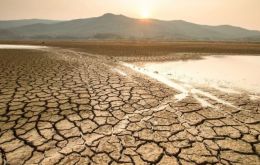
Chile's Ministry of Agriculture declared on Friday an agriculture emergency in the extreme south Region of Magallanes and Chilean Antarctica because of the hydric deficit caused by the lack of rainfall. The decision was taken following on experts projections indicating the persistence of “meteorological and hydrologic drought conditions, both reflected in the shortfall of hydric surface and subterranean availability”
-
Saturday, October 29th 2022 - 10:20 UTC
Climate variability complicating crop sowing in Brazilian farming states
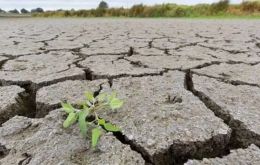
Climate variability and excessive rainfall have delayed the planting of Brazil’s 2022/2023 soy crop, which reached 34% of the estimated area, against 24% in the previous week and 38% in the same period last year, according to a survey by AgRural released this week.
